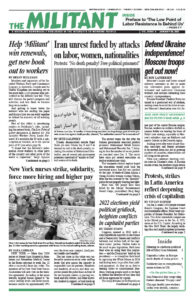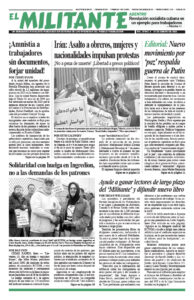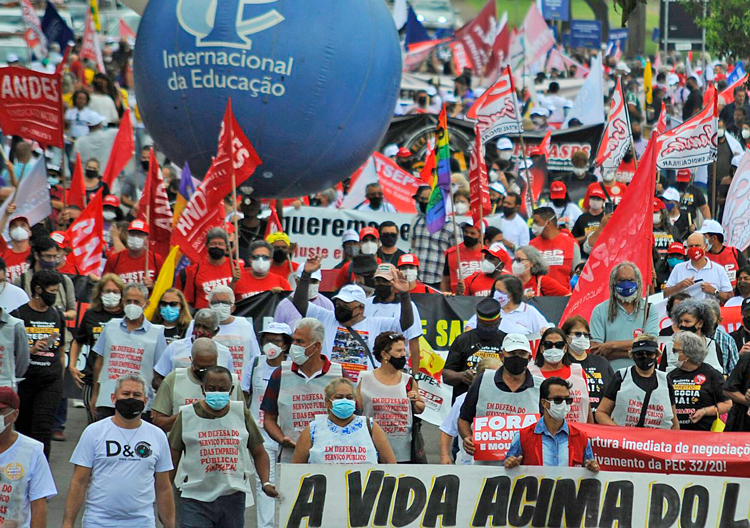On Jan. 8, some 5,000 people stormed Brazil’s Congress, the Supreme Court and presidential offices. Many were supporters of former President Jair Bolsonaro. This drew immediate comparison in the liberal press to the Jan. 6, 2021, melee at the U.S. Capitol. According to the New York Times, the largely working-class and small-proprietor protesters were partisans of “far-right extremism, inspired by antidemocratic leaders and fed by conspiracy theories.”
Many protesters demanded the military remove President Luiz Inácio Lula da Silva, who was sworn into office a week earlier. Lula called the protesters “vandals, neo-fascists and fanatics.” Government forces rounded up some 1,500 people, releasing almost 600 the next day.
Bolsonaro condemned the attack on the Congress. He has not conceded he lost the October election, the closest in Brazil’s history.
Despite claims by the liberal press and leftist governments in Latin America, the actions in Brazil were not driven by a rise of “neo-fascists.” It will take much deeper resistance by workers, farmers and the oppressed before a section of the capitalist rulers turns to fascist outfits to try to crush protests by workers, peasants and indigenous peoples. The turmoil sweeping Brazil — and protests taking place across Latin America — occur as more working people recognize that the bosses and their parties have no solution that doesn’t put today’s economic and social crisis of capitalism on our backs.
The sharp polarization in Brazil is part of a trend in bourgeois politics in Latin America that has grown over the last decade: the criminalization of political differences in which more and more bourgeois rivals resort to impeachments, jailing of opponents, and dissolution of government branches.
The number of Brazilians who can’t get enough to eat jumped almost 75% to 33 million over the last two years.
In Argentina the inflation rate has hit 94%. “There’s many people who work and they don’t have the money to pay for a kilo of meat,” Noemeí Colque, who runs a soup kitchen in Buenos Aires, told the Wall Street Journal.
Battered by economic crisis and soaring prices, working people see the capitalist rulers and their governments as intertwined with corruption, gang violence and disdain for the vast majority.
The crisis has propelled growing numbers of workers to head to the U.S., hoping to find work.
Peru’s president, Dina Boluarte, declared a 30-day state of emergency on Jan. 15 for Lima and three other regions. Weeks of mass protests broke out in December when then-President Pedro Castillo was ousted from office after attempting to dissolve Congress. Forty-two people have lost their lives. Boluarte, who was then vice president, says she will ignore calls for her resignation from “violent and radical factions.”
Boluarte’s decree suspends constitutional rights, including freedom of travel, freedom of assembly and the right to privacy in one’s home.
In November, farmers and truck drivers organized more than a dozen roadblocks to protest high gas prices and fertilizer shortages.
More than half of Peru’s population now find themselves without regular access to enough food. Wheat, rice, and cooking oil have more than doubled in price. Imported chemical fertilizers cost up to four times what they did a year ago, forcing farmers to reduce their use. The official poverty rate stands at 25%.
These are the real reasons behind the political upheaval and protests, problems that can only be solved by building a working-class movement with a revolutionary leadership to fight to take political power, as the toilers did in Cuba.
This is why rights like freedom of speech and assembly — under assault in Brazil and Peru — are of key importance today.


